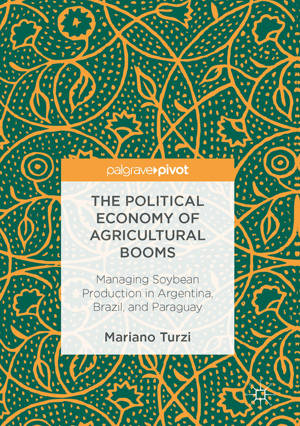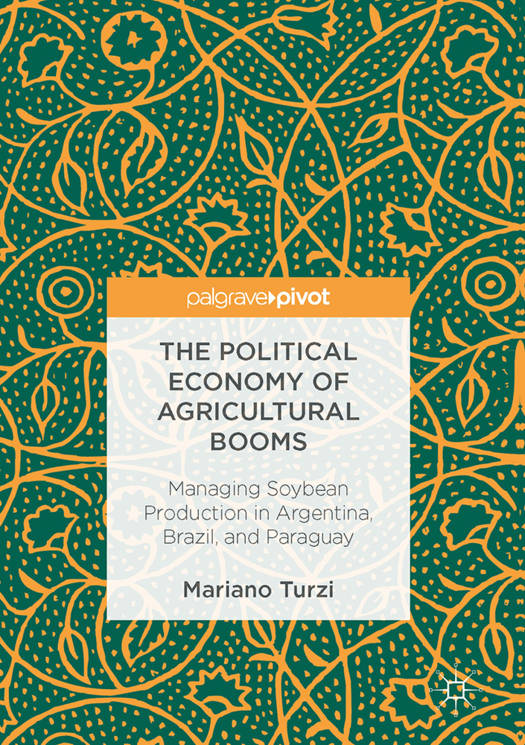
Door een staking bij bpost kan je online bestelling op dit moment iets langer onderweg zijn dan voorzien. Dringend iets nodig? Onze winkels ontvangen jou met open armen!
- Afhalen na 1 uur in een winkel met voorraad
- Gratis thuislevering in België vanaf € 30
- Ruim aanbod met 7 miljoen producten
Door een staking bij bpost kan je online bestelling op dit moment iets langer onderweg zijn dan voorzien. Dringend iets nodig? Onze winkels ontvangen jou met open armen!
- Afhalen na 1 uur in een winkel met voorraad
- Gratis thuislevering in België vanaf € 30
- Ruim aanbod met 7 miljoen producten
Zoeken
The Political Economy of Agricultural Booms
Managing Soybean Production in Argentina, Brazil, and Paraguay
Mariano Turzi
Hardcover | Engels
€ 63,45
+ 126 punten
Uitvoering
Omschrijving
This book offers an in-depth analysis of the political economy of soybean production in Brazil, Argentina and Paraguay, by identifying the dominant private and public actors and control mechanisms that have given rise to a corporate-driven, vertically integrated system of regionalized agricultural production in the Southern Cone of South America. The current agricultural boom surrounding soybean production has been aided by aggressive new agro-technologies, including biotechnology, leading to massive organizational changes in the agricultural sector and a significant rise in the power of special interest groups and corporations. Despite having similar initial production conditions, the pattern of economic activity surrounding soybean production in Brazil, Argentina and Paraguay, continues to be largely determined by the needs of the multinational corporations involved, rather than national considerations of comparative advantage. The author uses these findings to argue that the new international model of agricultural production empowers chemical and trading multinational companies over national governments.
Specificaties
Betrokkenen
- Auteur(s):
- Uitgeverij:
Inhoud
- Aantal bladzijden:
- 154
- Taal:
- Engels
Eigenschappen
- Productcode (EAN):
- 9783319459455
- Verschijningsdatum:
- 25/11/2016
- Uitvoering:
- Hardcover
- Formaat:
- Genaaid
- Afmetingen:
- 148 mm x 210 mm
- Gewicht:
- 435 g

Alleen bij Standaard Boekhandel
+ 126 punten op je klantenkaart van Standaard Boekhandel
Beoordelingen
We publiceren alleen reviews die voldoen aan de voorwaarden voor reviews. Bekijk onze voorwaarden voor reviews.











